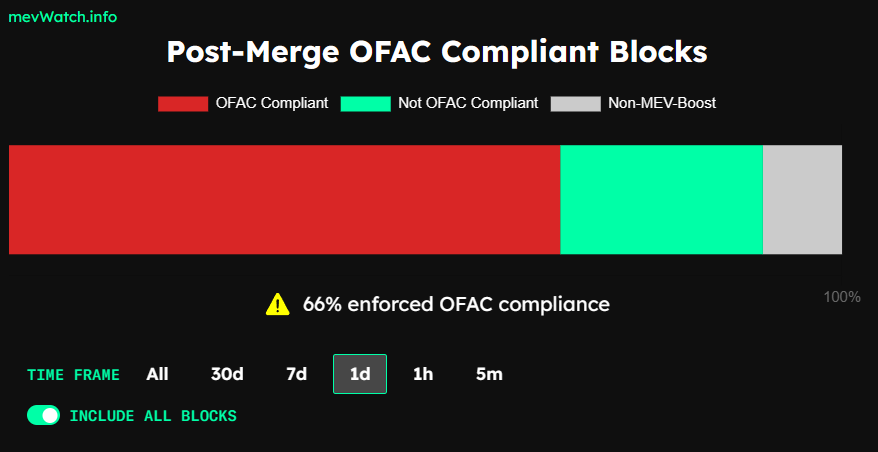Ethereum is one of the most widely used blockchain networks, and it has been gaining traction as a decentralized platform for various use cases. However, recent reports have highlighted the issue of censorship on the Ethereum network, which has raised concerns among the community. In this article, we will explore the concept of social slashing, its impact on Ethereum, and the potential solutions to address this issue.
What is Social Slashing?
Social slashing refers to the practice of validators excluding certain transactions when creating their own blocks. According to recent reports, roughly 30% of all Ethereum blocks post-merge are OFAC compliant, and of the blocks which use MEV-boost (34% of total), 66% are OFAC compliant. This trend is likely to continue, with the outcome for all chains being for this to trend towards 100%.
What does OFAC compliant mean?
OFAC compliant refers to the Office of Foreign Assets Control (OFAC) of the US Department of the Treasury. OFAC administers and enforces economic and trade sanctions based on US foreign policy and national security goals. Transactions involving OFAC-blacklisted addresses are considered to be non-compliant with OFAC regulations and are subject to censorship.
Impact of Social Slashing on Ethereum
Social slashing has raised concerns among the community as it could lead to frog-boiling risk, where people get used to progressively larger %s of stake being censored, until it’s 99%+. Additionally, governments could switch to forcing validators to not build on “bad” blocks, which would pose a significant threat to the decentralization and censorship-resistance of the Ethereum network.

Potential Solutions
There are several proposals to address the issue of social slashing on Ethereum. One of the most popular solutions is to disable the default relayer, which is run by Flashbots and censors OFAC-blacklisted addresses. This would reduce the number of validators outsourcing their block building to mev-boost, and thus reduce the censorship in building. Additionally, other relayers who give similar yields but do not censor, could be used as an alternative.
Conclusion
Social slashing is a significant issue that poses a threat to the decentralization and censorship-resistance of the Ethereum network. While the trend is likely to continue, there are several proposals to address this issue, such as disabling the default relayer and using alternative relayers that do not censor transactions. The community needs to work together to find a solution that ensures the integrity and censorship-resistance of the Ethereum network.
The post Understanding Social Slashing and its Impact on Ethereum appeared first on YourCryptoLibrary.
Wil je op de hoogte blijven van het laatste nieuws? Abonneer je dan op onze push-berichten op Telegram of Twitter.
Heb je vragen of wil je in contact komen met andere crypto fanaten join dan onze Telegram chat!



